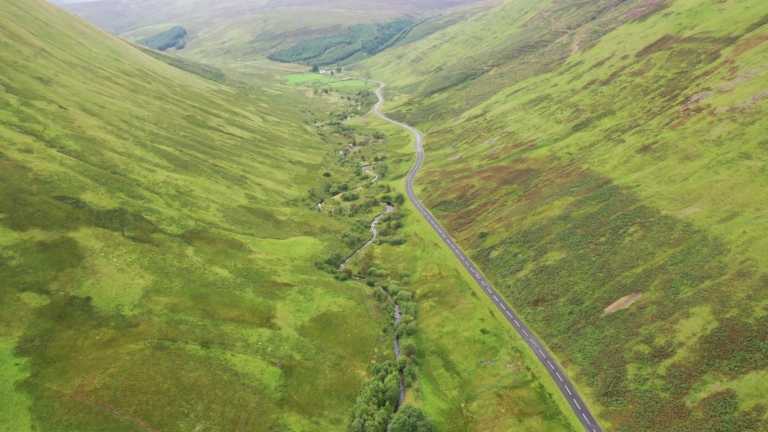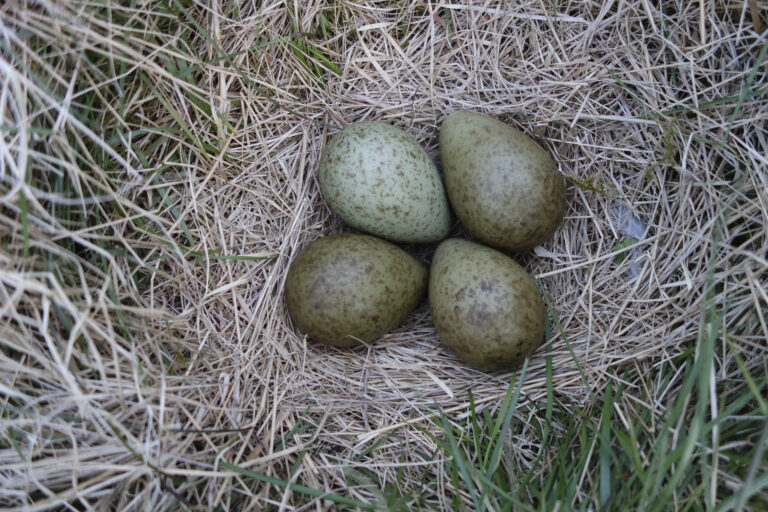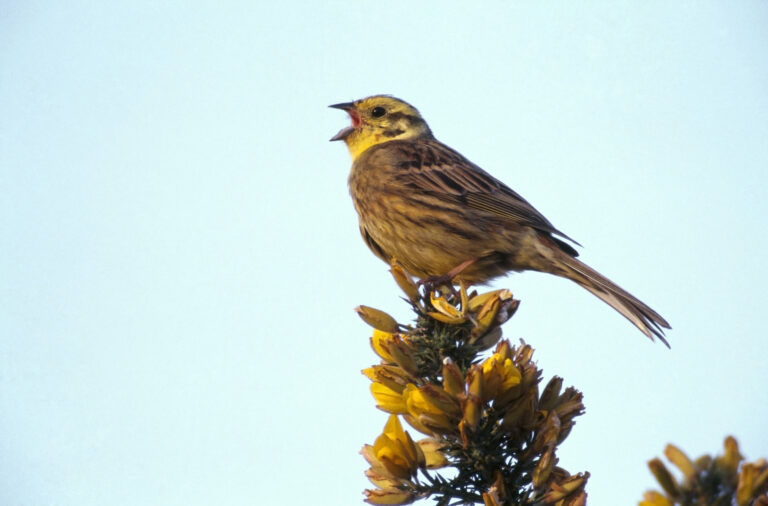Take action! Ask the Cabinet Secretary for Rural Affairs, Mairi Gougeon, to ensure that at least three quarters of public spending on farming supports farmers and crofters to produce food in ways that restore nature and tackle climate change.
Scroll down to find key points to make, and where to send your email.
We need to help farmers and crofters to reduce climate emissions and restore Scotland’s nature, as well as producing food. That means replacing our decades-old farm funding system with one that works for nature, climate and people.
But papers published by the Scottish government indicate that it intends to continue spending most of its farming budget on ‘direct payments’ to farmers based on how much land they farm, with very few environmental requirements – a system that disproportionately benefits a few large landowners and does very little to support sustainable farming.
There’s still time to make the new system work. The more of us write to Mairi Gougeon calling for change, the greater chance we have of a farm funding system that helps all farmers and crofters produce food sustainably.
Our chance to change Scottish farming
The Agriculture and Rural Communities Bill, currently being scrutinised by MSPs, is Scotland’s chance to make sure farmers and crofters get the support they need to farm sustainably. The bill contains some positive measures, including for rural support plans to be published every five years so that farmers and crofters know what they need to do to qualify for funding. It’s also encouraging that the bill refers to restoring nature and tackling climate change as being among the objectives of agricultural policy.
But the biggest test will be in how the money is distributed. The financial memorandum published alongside the bill suggests that the new funding system will mimic the current system, in which the majority of the Scottish government’s farming support budget goes to ‘direct payments’ to farmers based on the area of land they farm, with very few conditions attached as to how they manage that land.
The current funding system is massively weighted to a minority of large landowners, while smaller farms and crofts lose out. Since there are few environmental requirements, ‘direct payments’ are also a very poor use of public money, as they don’t achieve public policy objectives such as nature restoration or climate change mitigation.
For the financial year 2023-24, more than two thirds of the Scottish government’s £650 million farm support budget is being paid to farmers based on how much and what type of land they farm, with few conditions attached. In contrast, about 5 percent is going to dedicated ‘Agri-Environment’ payments, which help farmers to take targeted environmental action, like restoring habitats for farmland birds or converting to organic farming.
The Scottish Government has said it intends to add more environmental conditions to direct payments but the plans for these, so far, are lacking in detail and ambition. It’s not clear they will be enough to really help nature or tackle climate change. Large farms still stand to receive the most money, while crofts and smaller farms that are often already helping nature will continue to receive the least. This system isn’t fair to farmers or to nature and our climate.
Farming’s impact
Figures published in June show that climate emissions from agriculture have risen, making it the second largest source of Scottish emissions. At the end of last year, the Climate Change Committee reported that detail on a low-carbon Scottish agriculture policy was ‘urgently needed’. Intensive methods also make farming a major cause of wildlife declines. For example, wading birds such as curlew and lapwings, wildflowers and hedges, and insects that pollinate crops are all affected by farming methods that aren’t nature-friendly.
The Scottish government has ambitious, legally binding targets to reduce Scotland’s climate emissions. Nature restoration targets are due to be set in the Natural Environment Bill, expected in 2024.
But continuing to direct the majority of public spending on farming to area-based ‘direct payments’ with few or limited environmental conditions attached will make it impossible for Scotland to meet these crucial commitments.
Ambition for the transition
We need a much more ambitious approach. The Farm for Scotland’s Future campaign is calling on the Scottish government to ensure that at least three quarters of public spending on farming supports farmers and crofters to produce food in ways that restore nature and tackle climate change.
Every farm is different, and there are many different things farmers and crofters can do to help achieve these shared goals. To give just a few examples, the new system should provide farmers and crofters with financial support to do things like protecting and restoring peatlands and wetlands, planting trees and hedgerows, creating habitats for threatened species, reducing chemical inputs, and improving access to nature for people.
The new system must also help farmers, crofters and other land managers to work together, and ensure that training and advice are available to them. The transition to sustainable farming will not happen overnight, and it’s essential that the funding system supports farmers and crofters in this process.
Write to Mairi Gougeon
The next couple of months will be crucial for influencing Scottish government decisions on the future of Scottish farming. Please write to Mairi Gougeon calling for a farm funding system that works for nature, climate and people.
Use your own words wherever you can. You could include examples of places in the countryside or farmland wildlife that matter to you. Remember to be polite!
Start your email, ‘Dear Cabinet Secretary’.
Suggested introductory paragraph:
‘I am concerned to learn that the Scottish government has indicated that it intends to continue spending most of its farming budget on ‘direct payments’ to farmers based on how much land they farm, with limited environmental requirements. Continuing to direct public funding in this way will not allow us to address the crises we face.’
Key points to make:
- Farming matters to everyone – we rely on farmers and crofters to manage Scotland’s land sustainably as well as producing food.
- Broadly replicating the current distribution of public spending on farming, in which most of the money goes to farmers as ‘direct payments’ with limited environmental conditions, will make it impossible to meet the Scottish government’s own climate and nature targets.
- The direct payments system also disproportionately benefits a few large landowners, while smaller farms and crofts lose out.
- Under the new system, at least three quarters of public spending on farming should support farmers and crofters to produce food in ways that restore nature and tackle climate change.
- More than 2,500 people signed the Farm for Scotland’s Future petition calling for this change.
Send your email to Mairi Gougeon on [email protected]
Please email campaign coordinator Miriam Ross on [email protected] to let us know if you write to Mairi Gougeon.
Further reading
Agriculture and Rural Communities (Scotland) Bill
Financial Memorandum to the Agriculture and Rural Communities Bill
A report from Scottish Environment LINK: Farm for Scotland’s Future – the case for change




